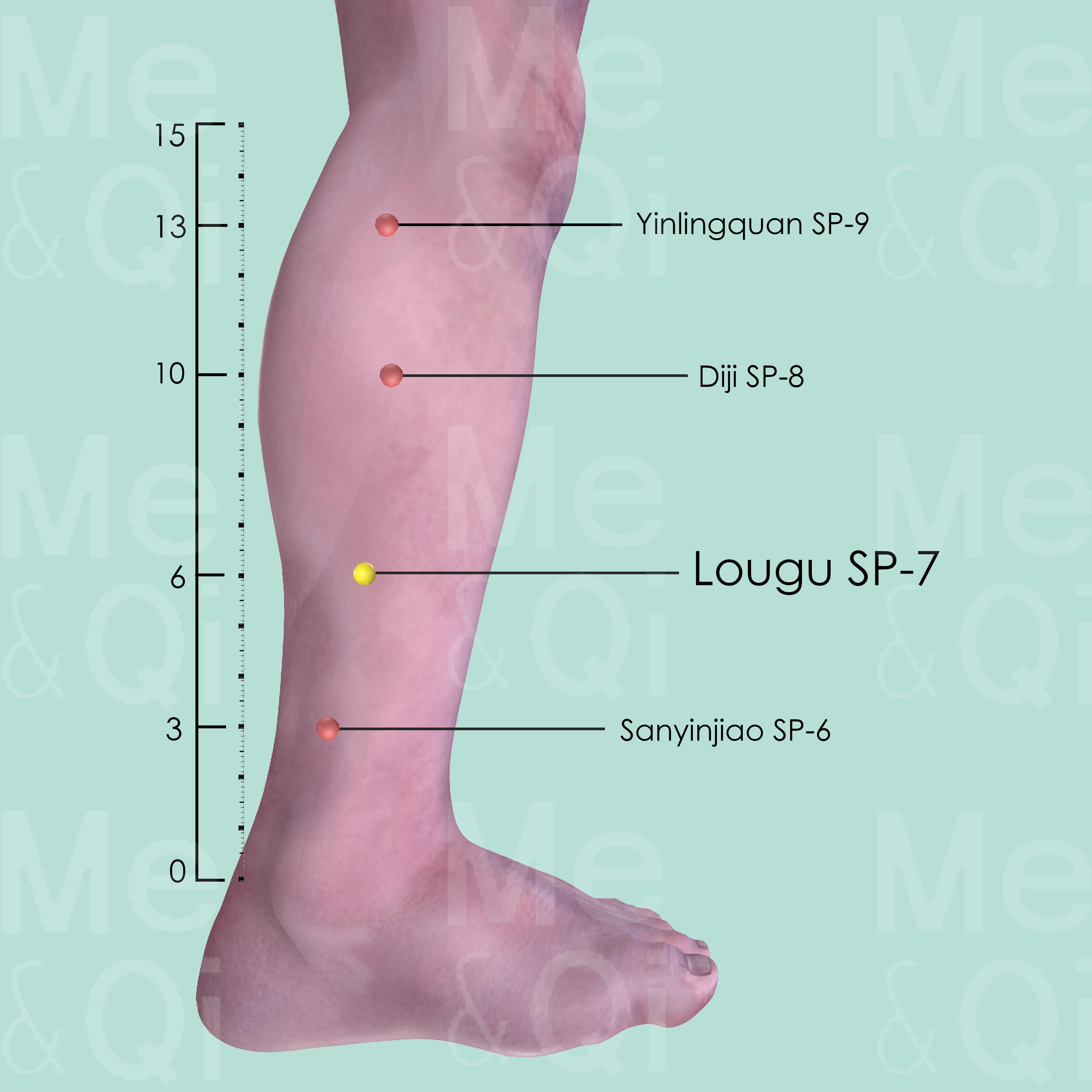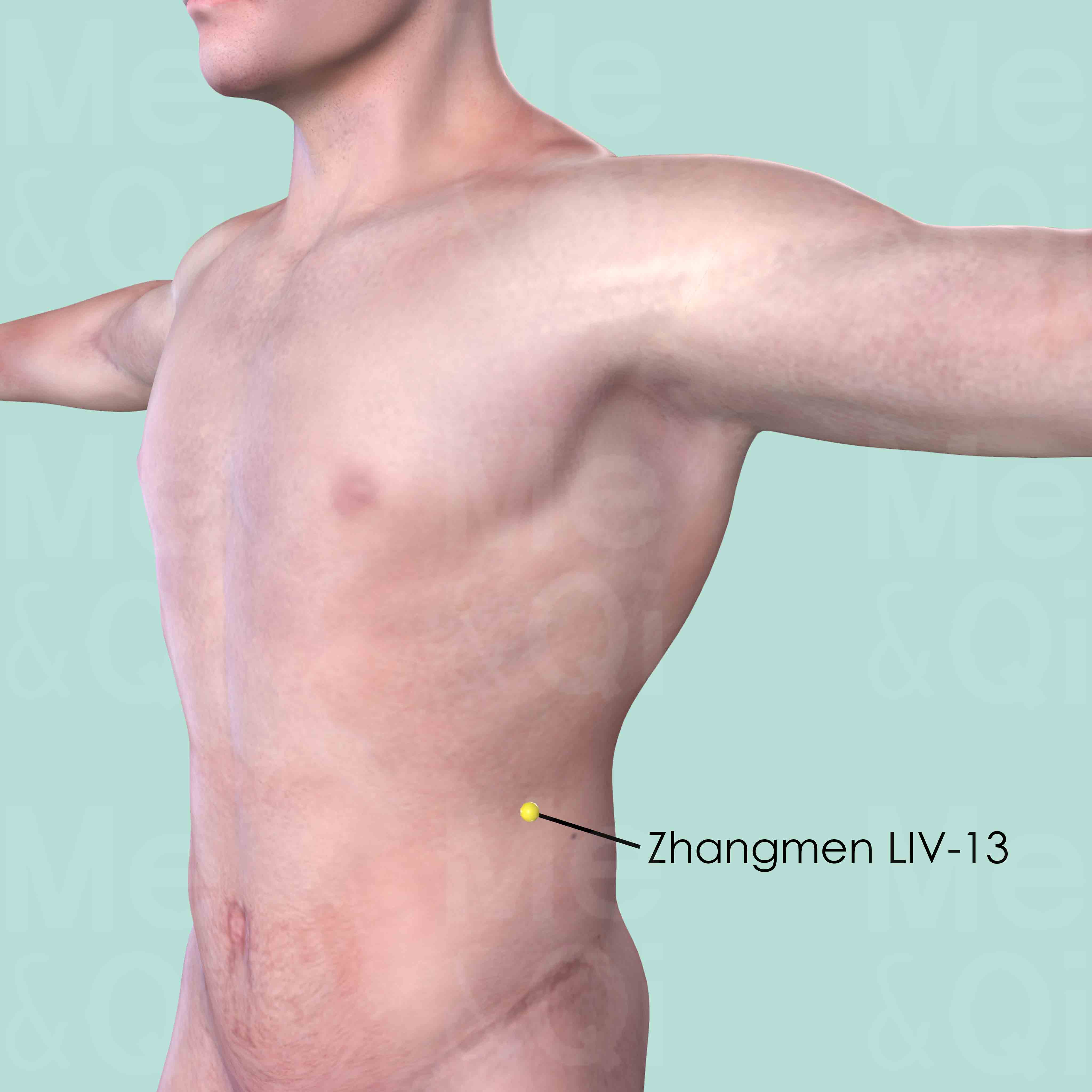Belchingaccording to TCM
Symptom family: Nausea and Vomiting
Sub-symptom(s): Persistent Belching
Root Causes of Belching in TCM
Explore below more details about what might cause Belching according to TCM.
- By Syndrome
- By Organ
- Qi Stagnation
- Qi Rebellion
- Phlegm
- Qi Deficiency
- View More Causes
- Stomach
- Liver
- Spleen
Qi Stagnation
Qi Stagnation in TCM is like having a traffic jam in your body's energy system. Qi, the vital life force that flows through your body, is supposed to move smoothly to maintain health and balance. But with Qi Stagnation, this flow gets blocked or slowed down, like cars stuck on a highway. This can lead to symptoms like feeling stressed, emotional mood swings, and physical discomfort, often described as a feeling of fullness or tightness, especially in the chest or abdomen. It's as though the body's internal energy circulation is disrupted, causing various issues. TCM sees this as an energy flow problem, different from modern medicine's focus on specific physiological processes.... see more
Qi Stagnation Patterns That Can Lead to Belching
Common Symptoms: Irritability Upper Abdominal Distension Depression Vomit Lack Of Appetite Abdominal Distention Sighing Mood Swings
| Pattern Name | Relevant Symptoms | Relevant Formulas |
|---|---|---|
| Liver Qi Stagnation | Belching, Hypochondriac distention, Chest distension, Upper abdominal distension, Abdominal distention, Sighing, Melancholia, Depression, Mood swings, Irregular periods, Globus sensation, Pre menstrual breast distension, Pre menstrual tension, Anxiety, Anger... see more | Chai Hu Shu Gan San |
| Stomach Qi Stagnation | Belching, Upper abdominal pain, Upper abdominal distension, Nausea, Vomit, Hiccups, Irritability... see more | Ban Xia Hou Pu Tang | Zuo Jin Wan |
| Qi Stagnation | Belching, General fullness, Moving pain, Depression, Irritability, Mood swings, Sighing | Yue Ju Wan |
| Liver Qi Stagnation invading the Stomach | Belching, Abdominal distention, Upper abdominal distension, Depression, Irritability, Dry mouth, Lack of appetite, Craving for sour foods, Dry throat, Acid reflux, Vomiting undigested food... see more | Ban Xia Hou Pu Tang | Zuo Jin Wan |
Qi Rebellion
Rebellious Qi in TCM is a bit like having a rebel inside your body. Qi, which is the vital energy flowing through your body, is supposed to move in certain directions to keep everything in balance and working well. But with Rebellious Qi, this energy decides to go the opposite way. Think of it like a river flowing upstream instead of downstream. This can cause various issues like heartburn, coughing, or even headaches. It's as if the body's natural flow is disrupted, creating a kind of internal chaos. TCM focuses on correcting this flow, restoring order and balance.... see more
Qi Rebellion Patterns That Can Lead to Belching
Common Symptoms: Hiccups Hypochondriac Distention Upper Abdominal Distension Sighing Nausea Or Vomiting Irritability Headaches Nausea
| Pattern Name | Relevant Symptoms | Relevant Formulas |
|---|---|---|
| Rebellious Liver Qi | Belching, Hypochondriac distention, Upper abdominal distension, Hiccups, Sighing, Nausea or vomiting, Stomach churning, Irritability, Breast engorgement, Headaches, Dizziness... see more | Chai Hu Shu Gan San | Si Ni San |
| Rebellious Liver Qi invading the Stomach | Belching, Irritability, Upper abdominal pain, Upper abdominal distension, Hypochondriac pain, Hypochondriac distention, Upper abdominal oppression, Acid reflux, Hiccups, Nausea or vomiting, Sighing, Weak limbs... see more | Ban Xia Hou Pu Tang | Xuan Fu Dai Zhe Tang | Si Mo Tang | Ju Pi Zhu Ru Tang | Ding Xiang Shi Di Tang |
| Rebellious Qi | Belching, Hiccups, Nausea, Vomit, Coughing, Asthma | Chai Hu Shu Gan San | Si Ni San | Xuan Fu Dai Zhe Tang | Ju Pi Zhu Ru Tang | Su Zi Jiang Qi Tang |
| Rebellious Stomach Qi | Belching, Nausea, Dysphagia, Vomit, Hiccups | Ban Xia Hou Pu Tang | Ding Xiang Shi Di Tang | Huo Xiang Zheng Qi San |
Phlegm
In TCM "Phlegm" as a pattern of disharmony is a complex concept that extends beyond the physical manifestation of mucus. It represents a pathological factor that can disrupt the flow of Qi (vital energy) and blood, leading to various health issues. Phlegm in TCM is seen as a sticky, turbid substance arising from the body's inability to metabolize fluids properly, often due to a dysfunction of the spleen. It's not only associated with respiratory problems like cough and congestion but also with systemic issues. Symptoms can include a feeling of heaviness, mental cloudiness, dizziness, and in some cases, the formation of lumps or masses. Phlegm can even be "invisible," contributing to emotional disturbances like depression or stress. ... see more
Phlegm Patterns That Can Lead to Belching
Common Symptoms: Stomach Dilation Vomit Feeling Of Oppression Of The Chest Head Fog Dizziness Nausea Feeling Of Heaviness Limb Numbness
| Pattern Name | Relevant Symptoms | Relevant Formulas |
|---|---|---|
| Phlegm | Belching, Feeling of oppression of the chest, Head fog, Dizziness | Yue Ju Wan | Wen Dan Tang | Ban Xia Hou Pu Tang |
| Stomach Qi Deficiency with Phelgm | Unremitting belching, Persistent belching, Hiccups, Vomit, Nausea or vomiting, Upper abdominal focal distention, Chronic gastritis, Stomach prolapse, Stomach dilation, Peptic ulcer, Chronic hepatitis... see more | Xuan Fu Dai Zhe Tang |
Qi Deficiency
Qi Deficiency in TCM is like running low on battery power. Qi is the vital energy that powers every function in your body. When there's a Qi Deficiency, it means your body doesn't have enough of this essential energy. This can make you feel tired all the time, weak, or even cause shortness of breath. It's similar to how you feel when you haven't had enough sleep or nutritious food. Your body just doesn't have the energy it needs to perform at its best. Unlike modern medicine, which often focuses on specific physical causes for fatigue and weakness, TCM views Qi Deficiency as an overall energy depletion that affects your entire well-being, and it seeks to replenish and balance this vital energy.... see more
Qi Deficiency Patterns That Can Lead to Belching
Common Symptoms: Vomit Chronic Hepatitis Stomach Prolapse Dizziness Unsteadiness Blurry Vision Deafness Tinnitus
| Pattern Name | Relevant Symptoms | Relevant Formulas |
|---|---|---|
| Spleen and Stomach Qi Deficiency | Belching, Dizziness, Unsteadiness, Blurry vision, Deafness, Tinnitus, Shortness of breath, Weak voice, Pale face, Lack of appetite, Diarrhea... see more | Xiang Sha Liu Jun Zi Tang |
| Stomach Qi Deficiency with Phelgm | Unremitting belching, Persistent belching, Hiccups, Vomit, Nausea or vomiting, Upper abdominal focal distention, Chronic gastritis, Stomach prolapse, Stomach dilation, Peptic ulcer, Chronic hepatitis... see more | Xuan Fu Dai Zhe Tang |
Stomach
In TCM the Stomach is regarded as the "sea of nourishment," pivotal for digesting food and transforming it into Qi and blood. It works closely with the Spleen to distribute these essential nutrients throughout the body. When the Stomach is out of balance or malfunctions in TCM, it often leads to digestive problems such as bloating, nausea, vomiting, poor appetite, or a feeling of fullness. There may also be issues like acid reflux or a sour taste in the mouth. Emotionally, an imbalanced Stomach can contribute to excessive worry and overthinking, reflecting the TCM belief that physical and emotional well-being are deeply interconnected.... see more
Stomach Patterns That Can Lead to Belching
Common Symptoms: Hiccups Vomit Nausea Acid Reflux Lack Of Appetite Upper Abdominal Distension Irritability Abdominal Distention
| Pattern Name | Relevant Symptoms | Relevant Formulas |
|---|---|---|
| Food Stagnation in the Stomach | Belching, Epigastric fullness and pain relieved by vomiting, Nausea, Vomiting of sour fluids, Bad breath, Acid reflux, Insomnia, Alternating diarrhea and constipation, Lack of appetite, Abdominal pain due to overeating... see more | Bao He Wan | Zhi Shi Dao Zhi Wan | Gua Di San |
| Rebellious Liver Qi invading the Stomach | Belching, Irritability, Upper abdominal pain, Upper abdominal distension, Hypochondriac pain, Hypochondriac distention, Upper abdominal oppression, Acid reflux, Hiccups, Nausea or vomiting, Sighing, Weak limbs... see more | Ban Xia Hou Pu Tang | Xuan Fu Dai Zhe Tang | Si Mo Tang | Ju Pi Zhu Ru Tang | Ding Xiang Shi Di Tang |
| Rebellious Stomach Qi | Belching, Nausea, Dysphagia, Vomit, Hiccups | Ban Xia Hou Pu Tang | Ding Xiang Shi Di Tang | Huo Xiang Zheng Qi San |
| Stomach Qi Stagnation | Belching, Upper abdominal pain, Upper abdominal distension, Nausea, Vomit, Hiccups, Irritability... see more | Ban Xia Hou Pu Tang | Zuo Jin Wan |
| Liver Qi Stagnation invading the Stomach | Belching, Abdominal distention, Upper abdominal distension, Depression, Irritability, Dry mouth, Lack of appetite, Craving for sour foods, Dry throat, Acid reflux, Vomiting undigested food... see more | Ban Xia Hou Pu Tang | Zuo Jin Wan |
| Spleen and Stomach Qi Deficiency | Belching, Dizziness, Unsteadiness, Blurry vision, Deafness, Tinnitus, Shortness of breath, Weak voice, Pale face, Lack of appetite, Diarrhea... see more | Xiang Sha Liu Jun Zi Tang |
| Stomach Qi Deficiency with Phelgm | Unremitting belching, Persistent belching, Hiccups, Vomit, Nausea or vomiting, Upper abdominal focal distention, Chronic gastritis, Stomach prolapse, Stomach dilation, Peptic ulcer, Chronic hepatitis... see more | Xuan Fu Dai Zhe Tang |
Liver
In TCM the Liver is viewed as the organ responsible for the smooth flow of Qi, Blood, and emotions throughout the body. It plays a key role in regulating mood, storing blood, supporting digestion, and ensuring the health of tendons and eyes. When the Liver malfunctions or is imbalanced in TCM, it can lead to a range of issues such as irritability, mood swings, menstrual irregularities, eye problems, and muscular stiffness or pain. A malfunctioning Liver in TCM reflects not only physical disturbances but also emotional and mental disharmony, emphasizing the holistic approach of TCM in addressing health and wellness.... see more
Liver Patterns That Can Lead to Belching
Common Symptoms: Upper Abdominal Distension Irritability Hypochondriac Distention Sighing Hiccups Abdominal Distention Depression Hypochondriac Pain
| Pattern Name | Relevant Symptoms | Relevant Formulas |
|---|---|---|
| Liver Qi Stagnation | Belching, Hypochondriac distention, Chest distension, Upper abdominal distension, Abdominal distention, Sighing, Melancholia, Depression, Mood swings, Irregular periods, Globus sensation, Pre menstrual breast distension, Pre menstrual tension, Anxiety, Anger... see more | Chai Hu Shu Gan San |
| Rebellious Liver Qi | Belching, Hypochondriac distention, Upper abdominal distension, Hiccups, Sighing, Nausea or vomiting, Stomach churning, Irritability, Breast engorgement, Headaches, Dizziness... see more | Chai Hu Shu Gan San | Si Ni San |
| Rebellious Liver Qi invading the Stomach | Belching, Irritability, Upper abdominal pain, Upper abdominal distension, Hypochondriac pain, Hypochondriac distention, Upper abdominal oppression, Acid reflux, Hiccups, Nausea or vomiting, Sighing, Weak limbs... see more | Ban Xia Hou Pu Tang | Xuan Fu Dai Zhe Tang | Si Mo Tang | Ju Pi Zhu Ru Tang | Ding Xiang Shi Di Tang |
| Liver Qi Stagnation invading the Stomach | Belching, Abdominal distention, Upper abdominal distension, Depression, Irritability, Dry mouth, Lack of appetite, Craving for sour foods, Dry throat, Acid reflux, Vomiting undigested food... see more | Ban Xia Hou Pu Tang | Zuo Jin Wan |
Spleen
In TCM the Spleen plays a vital role in digestion and transformation, converting food into energy and nutrients, and overseeing the distribution of Qi and Blood. It's also crucial in maintaining the health of muscles and limbs and ensuring the blood remains within the vessels. When the Spleen malfunctions in TCM, it can lead to a variety of issues such as digestive disorders, fatigue, weak muscles, bloating, and a feeling of heaviness. It can also cause a pale complexion, poor appetite, and a tendency to bruise easily. Emotionally, a Spleen imbalance is often associated with excessive worry or overthinking, reflecting its role in the interplay between physical and mental health.... see more
Spleen Patterns That Can Lead to Belching
| Pattern Name | Relevant Symptoms | Relevant Formulas |
|---|---|---|
| Spleen and Stomach Qi Deficiency | Belching, Dizziness, Unsteadiness, Blurry vision, Deafness, Tinnitus, Shortness of breath, Weak voice, Pale face, Lack of appetite, Diarrhea... see more | Xiang Sha Liu Jun Zi Tang |
TCM Herbal Formulas for Belching
Explore below some TCM herbal formulas used to address belching, organized by cause and by formula type.
- By Cause
- By Formula Type
- Qi Stagnation
- Qi Rebellion
- Phlegm
- Qi Deficiency
- View More Causes
- Formulas that promote qi movement
- Formulas for a rebellious qi
- Formulas that reduce food accumulation and transform stagnation
- Formulas that induce vomiting
- Formulas that dry dampness and transform phlegm
- Formulas that clear heat
- Formulas that harmonize liver-Spleen
- Formulas that transform dampness and harmonize stomach
- Formulas that dispel phlegm
Top Formula for Qi Stagnation:
Ban Xia Hou Pu Tang
Suitable for Qi Stagnation patterns that may cause belching, such as Liver Qi Stagnation invading the Stomach or Stomach Qi Stagnation
Learn moreAll Formulas Recommended for Belching Caused by Qi Stagnation
| Formula | Patterns Suitable For |
|---|---|
| Ban Xia Hou Pu Tang | Liver Qi Stagnation invading the Stomach, Stomach Qi Stagnation |
| Zuo Jin Wan | Liver Qi Stagnation invading the Stomach, Stomach Qi Stagnation |
| Chai Hu Shu Gan San | Liver Qi Stagnation |
| Yue Ju Wan | Qi Stagnation |
Top Formula for Qi Rebellion:
Ban Xia Hou Pu Tang
Suitable for Qi Rebellion patterns that may cause belching, such as Rebellious Liver Qi invading the Stomach or Rebellious Stomach Qi
Learn moreAll Formulas Recommended for Belching Caused by Qi Rebellion
| Formula | Patterns Suitable For |
|---|---|
| Ban Xia Hou Pu Tang | Rebellious Liver Qi invading the Stomach, Rebellious Stomach Qi |
| Chai Hu Shu Gan San | Rebellious Liver Qi, Rebellious Qi |
| Xuan Fu Dai Zhe Tang | Rebellious Liver Qi invading the Stomach, Rebellious Qi |
| Si Ni San | Rebellious Liver Qi, Rebellious Qi |
| Ju Pi Zhu Ru Tang | Rebellious Liver Qi invading the Stomach, Rebellious Qi |
| Ding Xiang Shi Di Tang | Rebellious Liver Qi invading the Stomach, Rebellious Stomach Qi |
| Si Mo Tang | Rebellious Liver Qi invading the Stomach |
| Su Zi Jiang Qi Tang | Rebellious Qi |
| Huo Xiang Zheng Qi San | Rebellious Stomach Qi |
Top Formula for Phlegm:
Ban Xia Hou Pu Tang
Suitable for Phlegm patterns that may cause belching, such as Phlegm
Learn moreAll Formulas Recommended for Belching Caused by Phlegm
| Formula | Patterns Suitable For |
|---|---|
| Ban Xia Hou Pu Tang | Phlegm |
| Xuan Fu Dai Zhe Tang | Stomach Qi Deficiency with Phelgm |
| Yue Ju Wan | Phlegm |
| Wen Dan Tang | Phlegm |
Top Formula for Qi Deficiency:
Xuan Fu Dai Zhe Tang
Suitable for Qi Deficiency patterns that may cause belching, such as Stomach Qi Deficiency with Phelgm
Learn moreAll Formulas Recommended for Belching Caused by Qi Deficiency
| Formula | Patterns Suitable For |
|---|---|
| Xuan Fu Dai Zhe Tang | Stomach Qi Deficiency with Phelgm |
| Xiang Sha Liu Jun Zi Tang | Spleen and Stomach Qi Deficiency |
Formulas that promote Qi movement
These formulas are suitable for some belching-causing patterns like Phlegm or Liver Qi Stagnation invading the Stomach.
One such formula is Ban Xia Hou Pu Tang, with crow-dipper rhizome as a key herb.
Other formulas of this category are listed in the table below.
All "formulas that promote qi movement" recommended for belching
| Formula | Patterns Suitable For (if applicable) |
|---|---|
| Ban Xia Hou Pu Tang | Phlegm, Liver Qi Stagnation invading the Stomach, Rebellious Liver Qi invading the Stomach, Rebellious Stomach Qi, Stomach Qi Stagnation... see more |
| Chai Hu Shu Gan San | Liver Qi Stagnation, Rebellious Liver Qi, Rebellious Qi |
| Yue Ju Wan | Phlegm, Qi Stagnation |
| Si Mo Tang | Rebellious Liver Qi invading the Stomach |
Formulas for a rebellious Qi
These formulas are suitable for some belching-causing patterns like Rebellious Liver Qi invading the Stomach or Rebellious Qi.
One such formula is Xuan Fu Dai Zhe Tang, with inula flower as a key herb.
Other formulas of this category are listed in the table below.
All "formulas for a rebellious qi" recommended for belching
| Formula | Patterns Suitable For (if applicable) |
|---|---|
| Xuan Fu Dai Zhe Tang | Rebellious Liver Qi invading the Stomach, Rebellious Qi, Stomach Qi Deficiency with Phelgm... see more |
| Ju Pi Zhu Ru Tang | Rebellious Liver Qi invading the Stomach, Rebellious Qi |
| Ding Xiang Shi Di Tang | Rebellious Liver Qi invading the Stomach, Rebellious Stomach Qi |
| Su Zi Jiang Qi Tang | Rebellious Qi |
Formulas that clear Heat
These formulas are suitable for some belching-causing patterns like Liver Qi Stagnation invading the Stomach or Stomach Qi Stagnation.
One such formula is Zuo Jin Wan, with goldthread rhizome as a key herb.
Formulas that harmonize Liver-Spleen
These formulas are suitable for some belching-causing patterns like Rebellious Liver Qi or Rebellious Qi.
One such formula is Si Ni San, with bupleurum root as a key herb.
Formulas that reduce food accumulation and transform Stagnation
These formulas are suitable for some belching-causing patterns like Food Stagnation in the Stomach.
One such formula is Bao He Wan, with hawthorn berry as a key herb.
Other formulas of this category are listed in the table below.
All "formulas that reduce food accumulation and transform stagnation" recommended for belching
| Formula | Patterns Suitable For (if applicable) |
|---|---|
| Bao He Wan | Food Stagnation in the Stomach |
| Zhi Shi Dao Zhi Wan | Food Stagnation in the Stomach |
Formulas that induce vomiting
These formulas are suitable for some belching-causing patterns like Food Stagnation in the Stomach.
One such formula is Gua Di San, with melon stalk as a key herb.
Formulas that dry Dampness and transform Phlegm
These formulas are suitable for some belching-causing patterns like Phlegm.
One such formula is Wen Dan Tang, with crow-dipper rhizome as a key herb.
Formulas that transform Dampness and harmonize Stomach
These formulas are suitable for some belching-causing patterns like Rebellious Stomach Qi.
One such formula is Huo Xiang Zheng Qi San, with korean mint as a key herb.
Formulas that dispel Phlegm
These formulas are suitable for some belching-causing patterns like Spleen and Stomach Qi Deficiency.
One such formula is Xiang Sha Liu Jun Zi Tang, with ginseng as a key herb.
Acupoints for Belching
Explore below some acupoints used to address belching, organized by meridian.
- By Meridian
- Bladder Channel
- Stomach Channel
- Spleen Channel
- Liver Channel
- Pericardium Channel
- Gall Bladder Channel
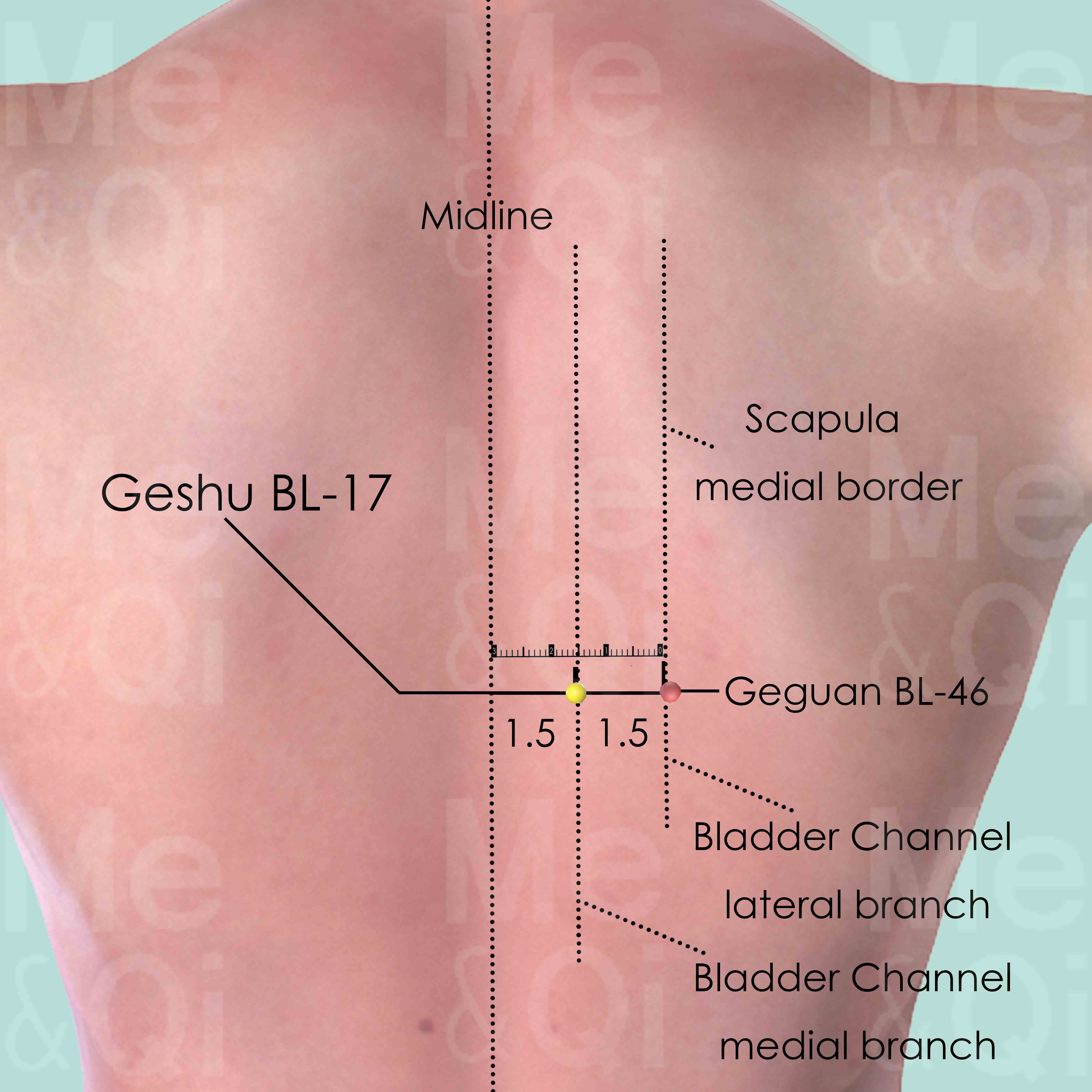
Geshu BL-17
1.5 cun lateral to the lower border of the spinous process of the 7th thoracic vertebra (T7).
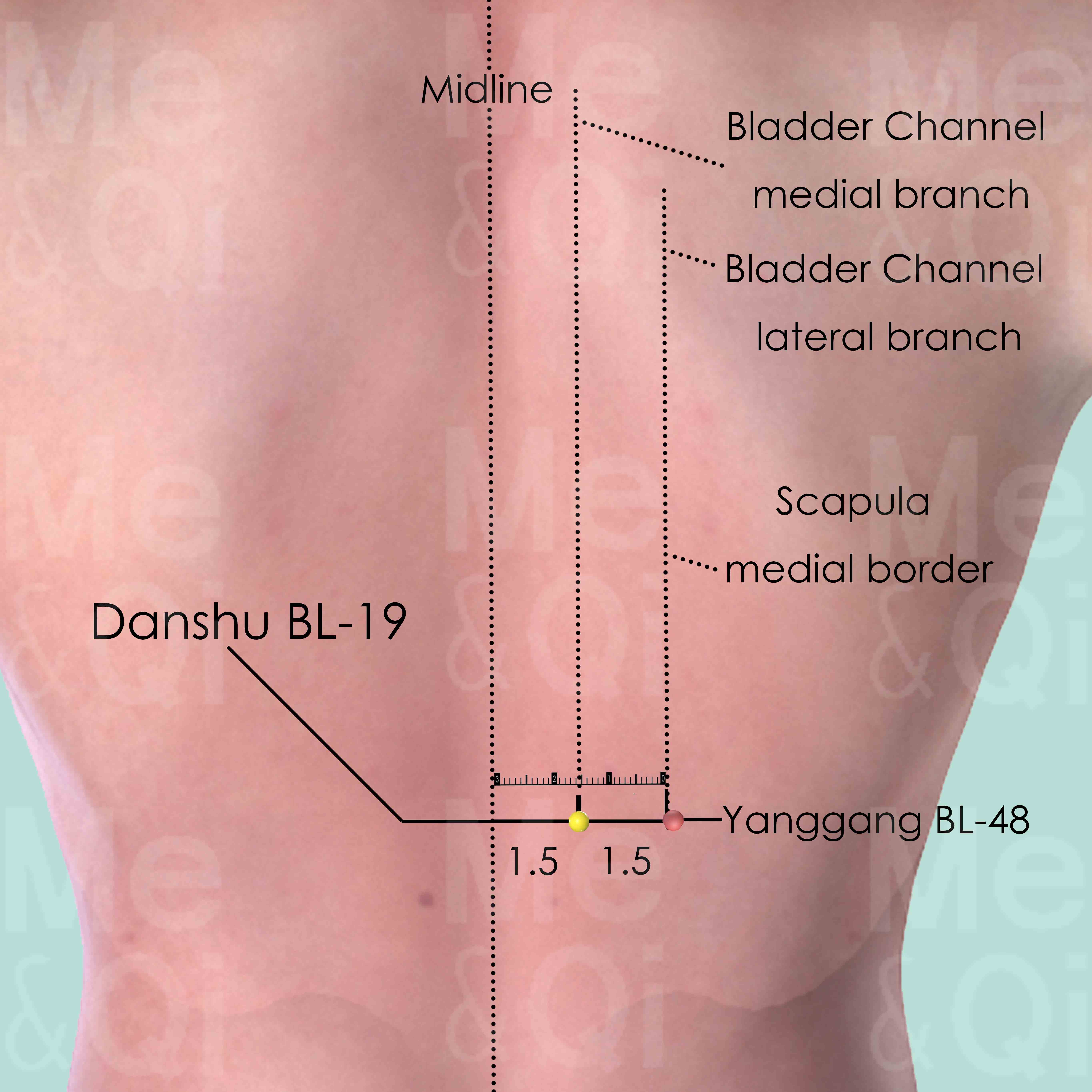
Danshu BL-19
1.5 cun lateral to the lower border of the spinous process of the 10th thoracic vertebra (T10).
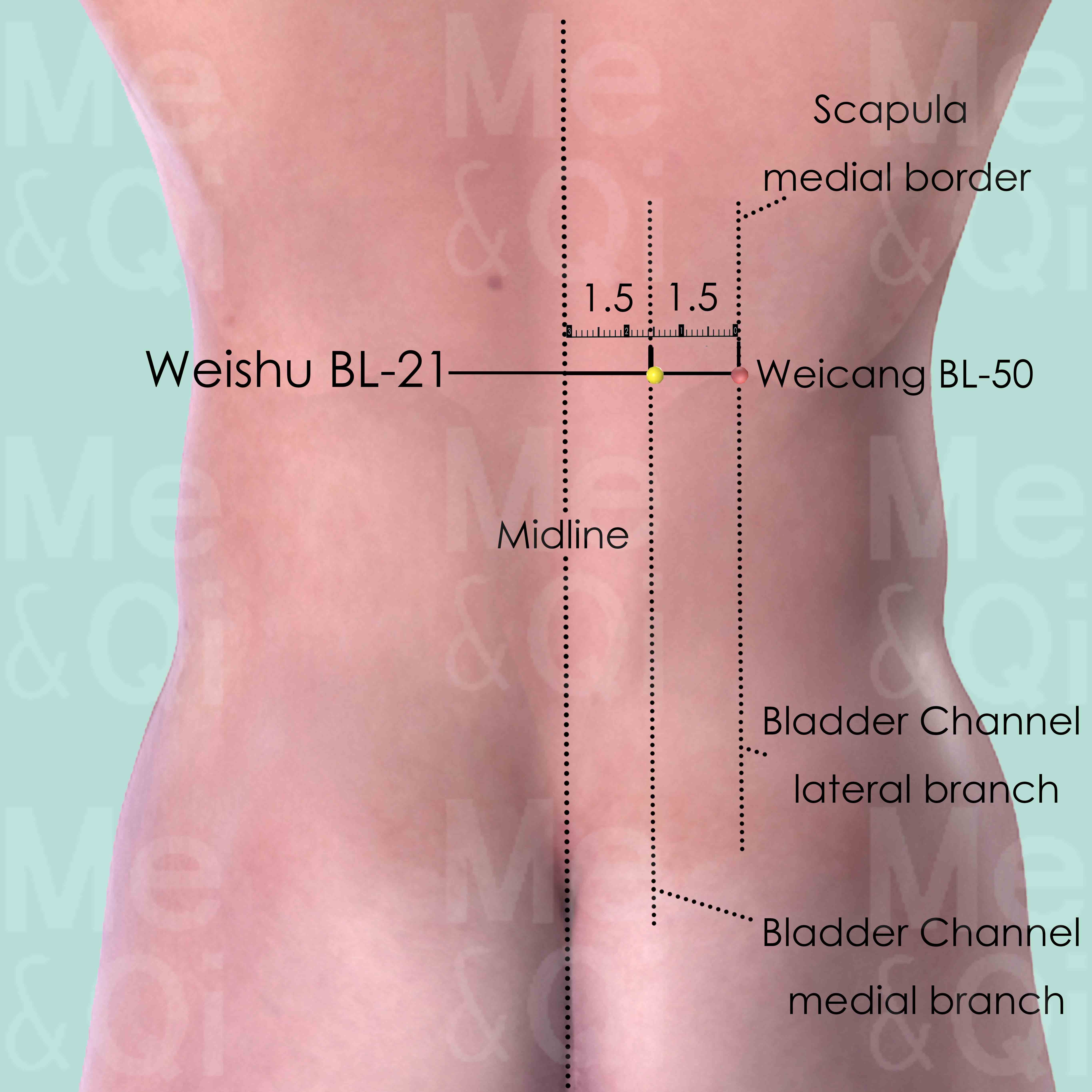
Weishu BL-21
1.5 cun lateral to the lower border of the spinous process of the 12th thoracic vertebra (T12).
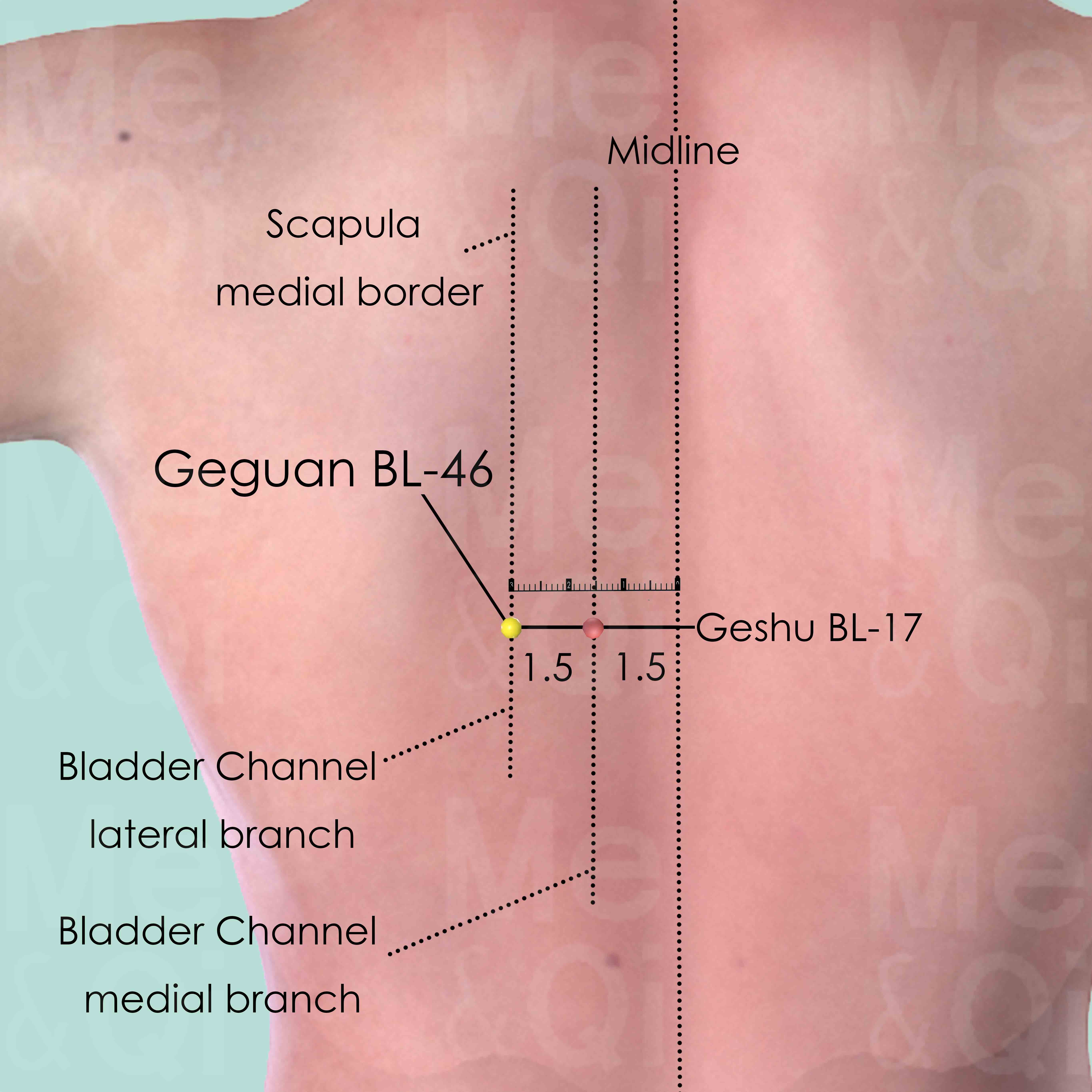
Geguan BL-46
3 cun (about 4 finger-breadths) lateral to the lower border of the spinous process of the 7th thoracic vertebra (T7).
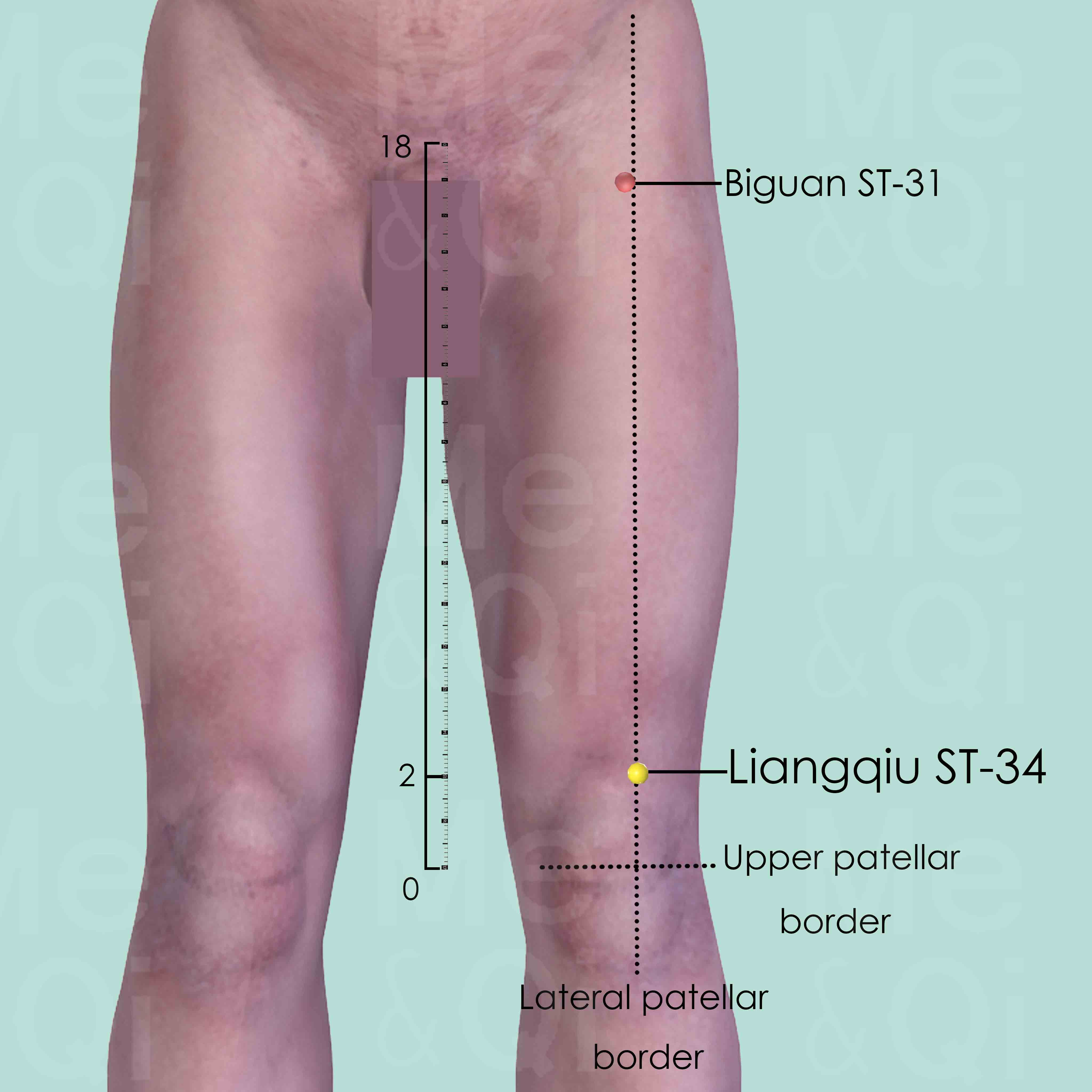
Liangqiu ST-34
2 cun above the upper-lateral border of the patella, on a line between the upper lateral patellar border and the anterior superior iliac spine (ASIS).
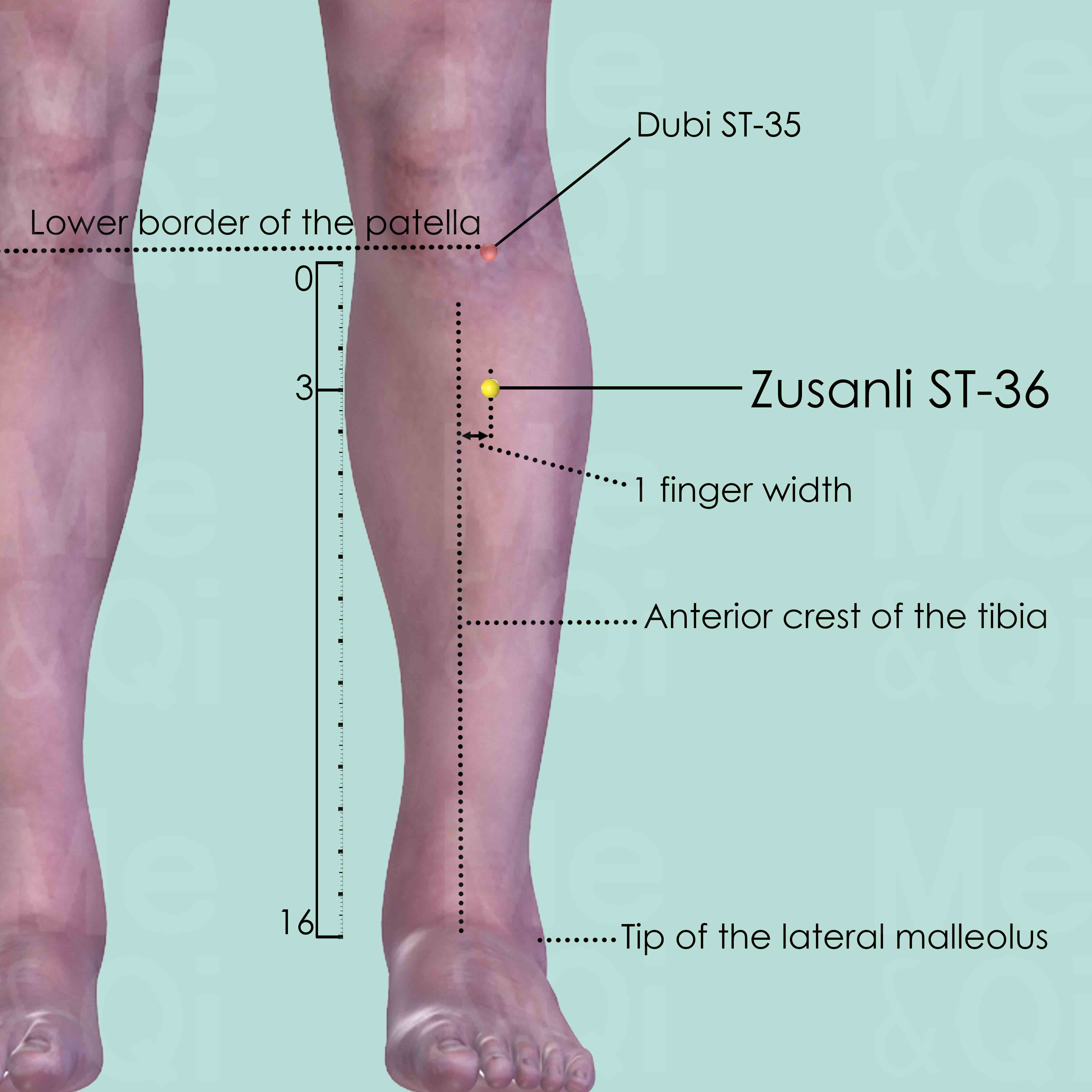
Zusanli ST-36
3 cun below Dubi ST-35, one finger breadth lateral to the anterior crest of the tibia, on the tibialis anterior muscle.
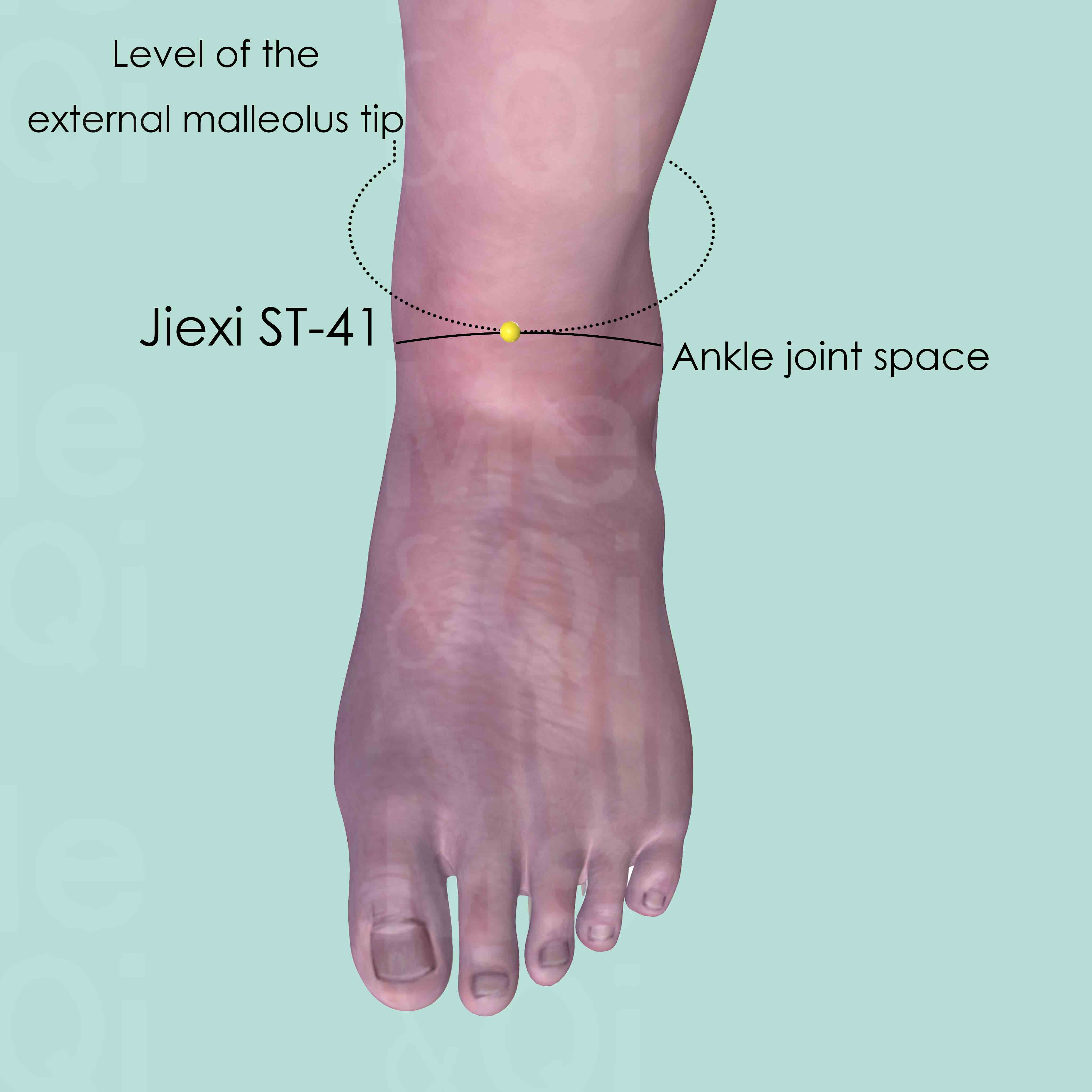
Jiexi ST-41
At the junction of the dorsum of the foot and leg, between the tendons of extensor digitorum and the extensor hallucis longus muscle. Approximately at the level of the tip of the external malleolus.
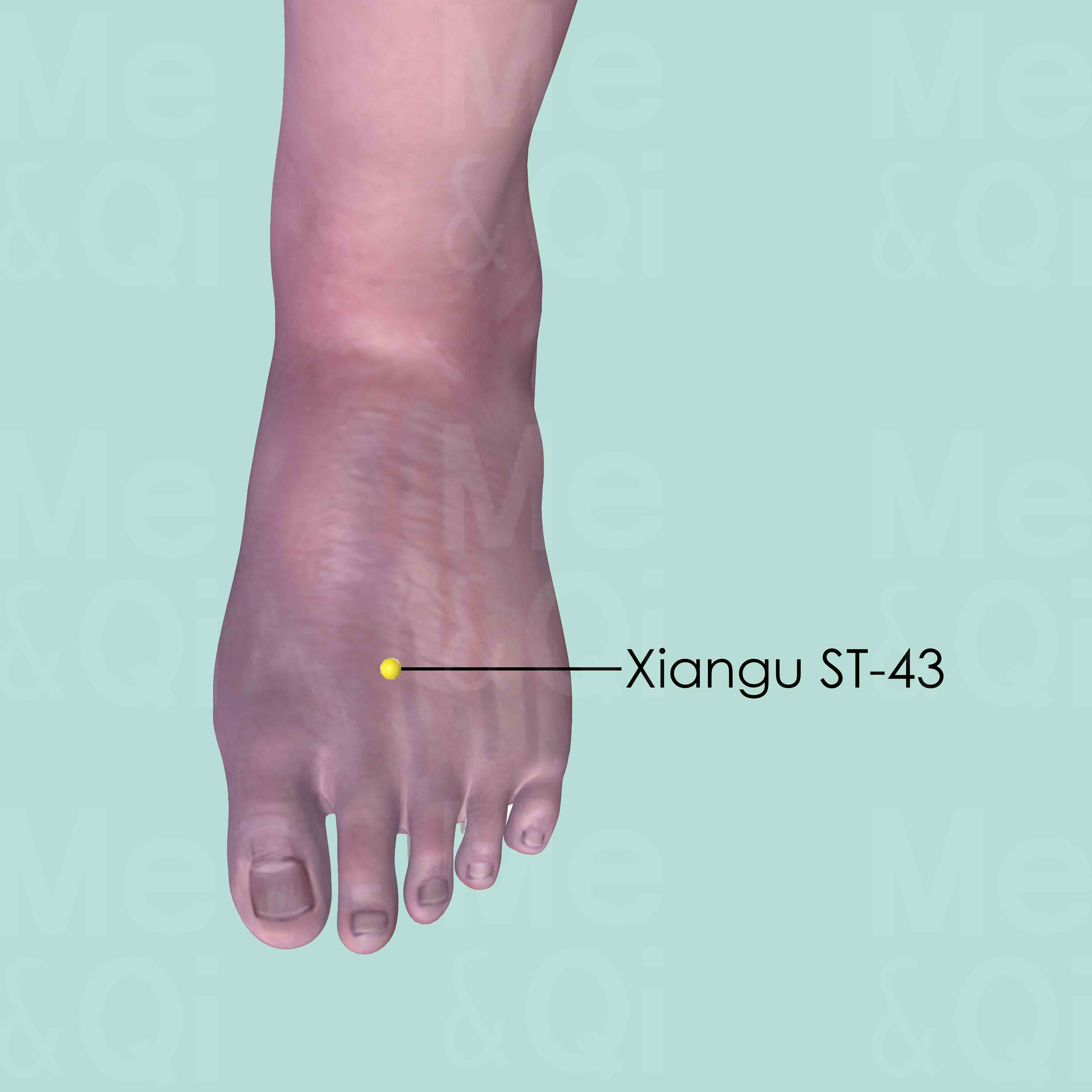
Xiangu ST-43
On the dorsum of the foot, in the depression between the 2nd and 3rd metatarsal bones, at the level of the junction of the shafts and the heads of these metatarsal bones.
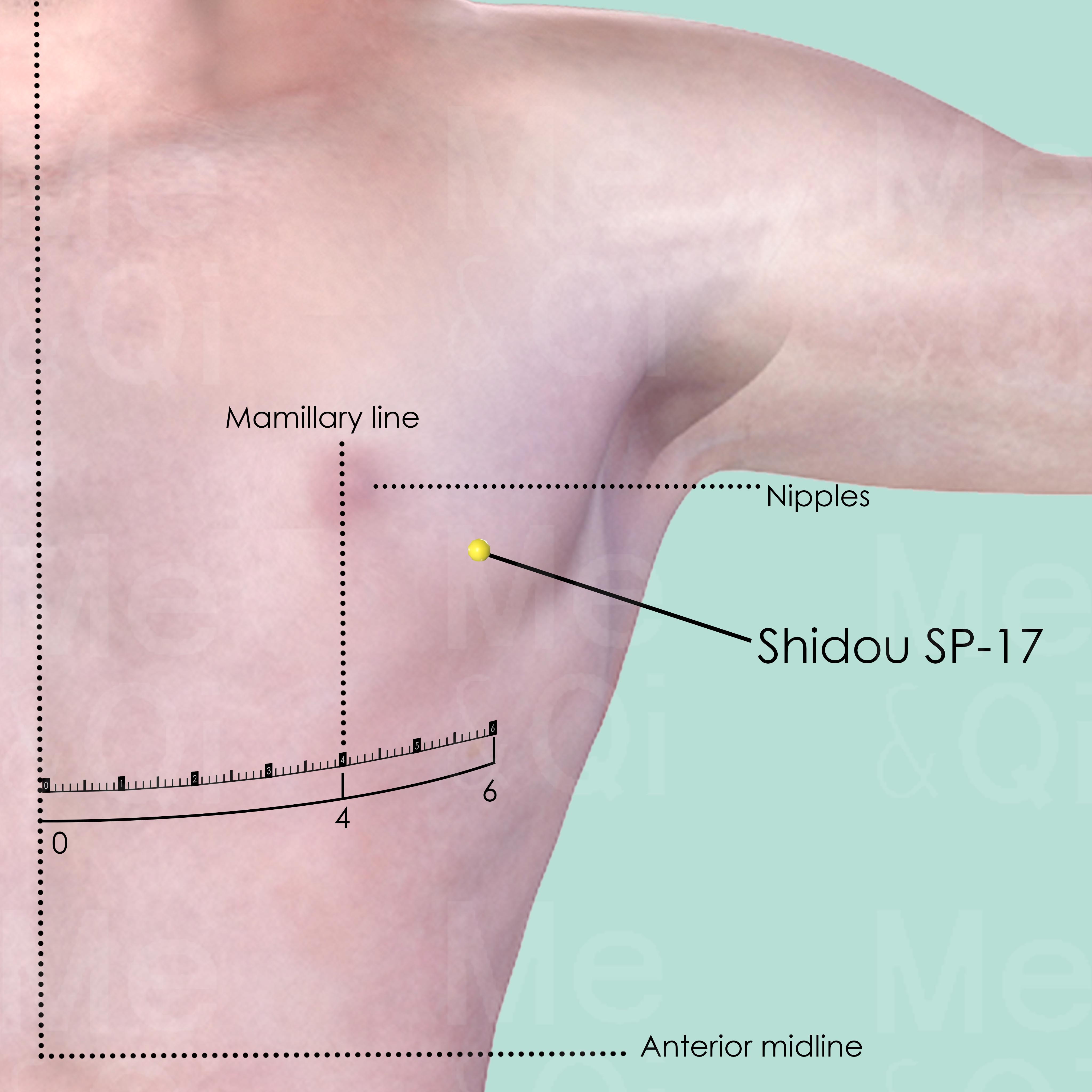
Shidou SP-17
6 cun lateral to the anterior midline, 2 cun lateral to the mamillary line, in the 5th intercostal space.
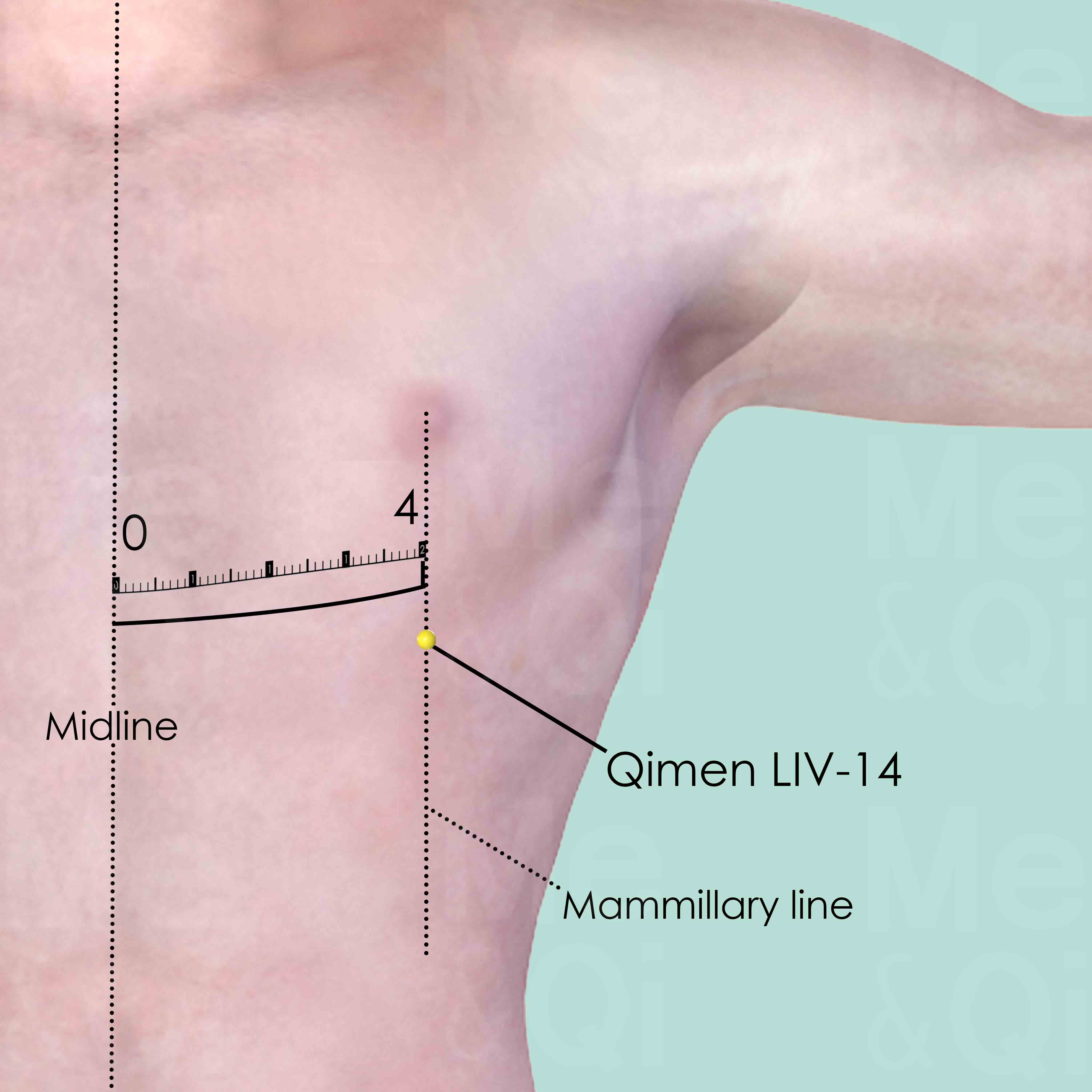
Qimen LIV-14
On the mammillary line, two ribs below the nipple, in the 6th intercostal space, 4 cun lateral to the midline. Please note that there is an alternative location for LIV-14 at the lower edge of the ribcage in line with the nipple or, in women, 4 cun from the midline. In fact, one could look upon these as two separate points. The one in the intercostal space is used more for Channel problems. While the one at the lower edge of the ribcage is used more for Organ problems.
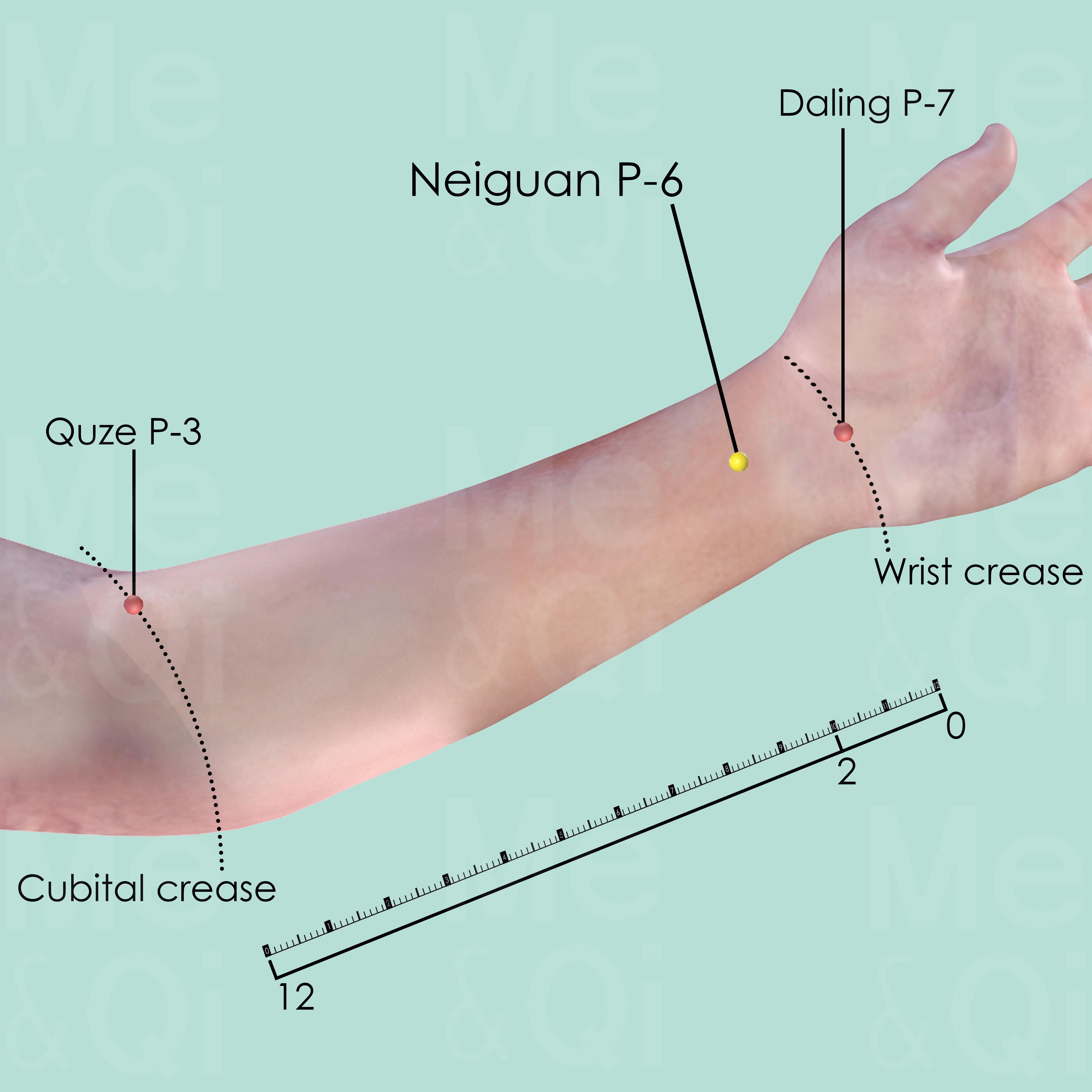
Neiguan P-6
2 cun above Daling P-7 on the transverse crease of the wrist, between the tendons of palmaris longus and flexor carpi radialis muscle.
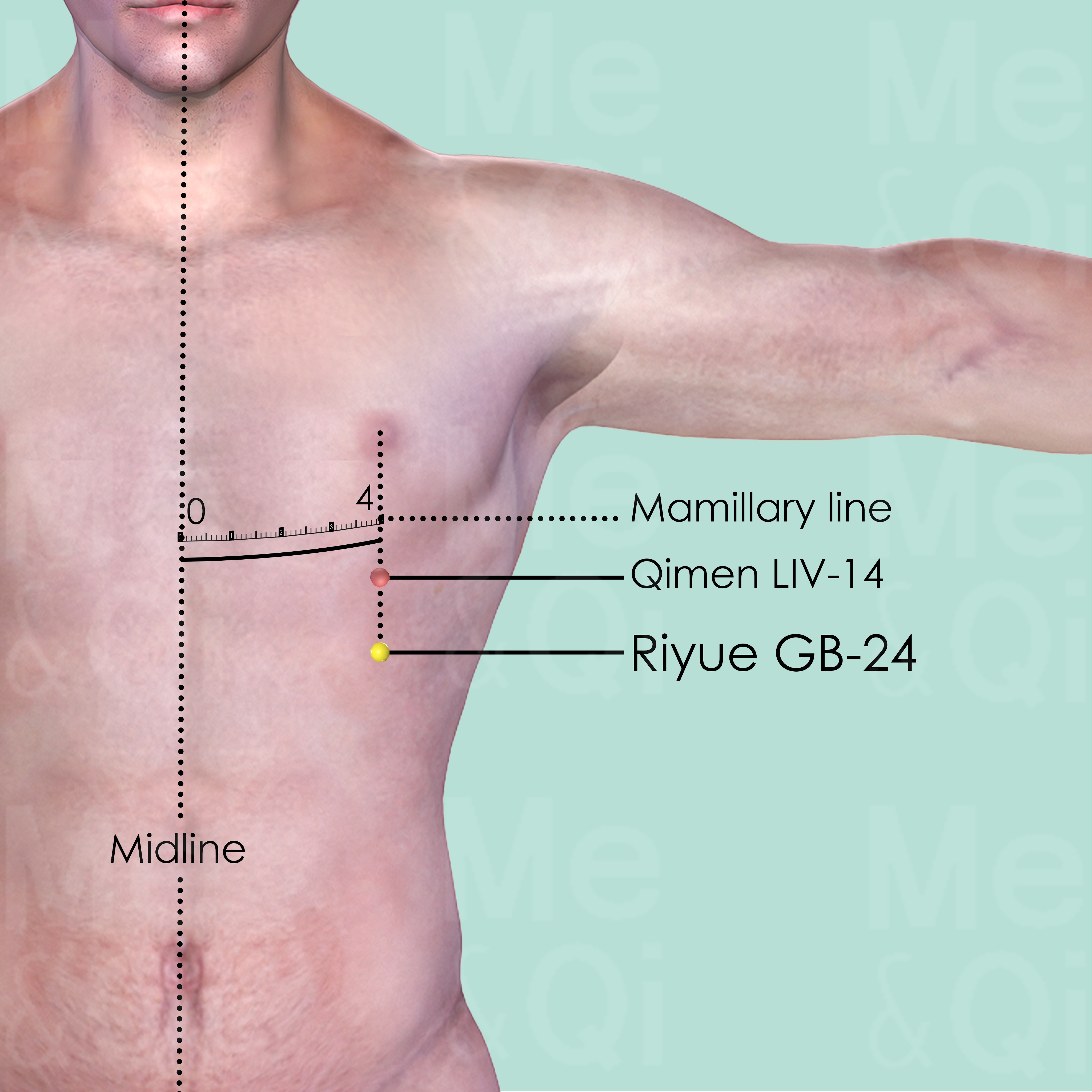
Riyue GB-24
On the mamillary line which is 4 cun lateral to the anterior midline, in the 7th intercostal space, 1 intercostal space below Qimen LIV-14.

